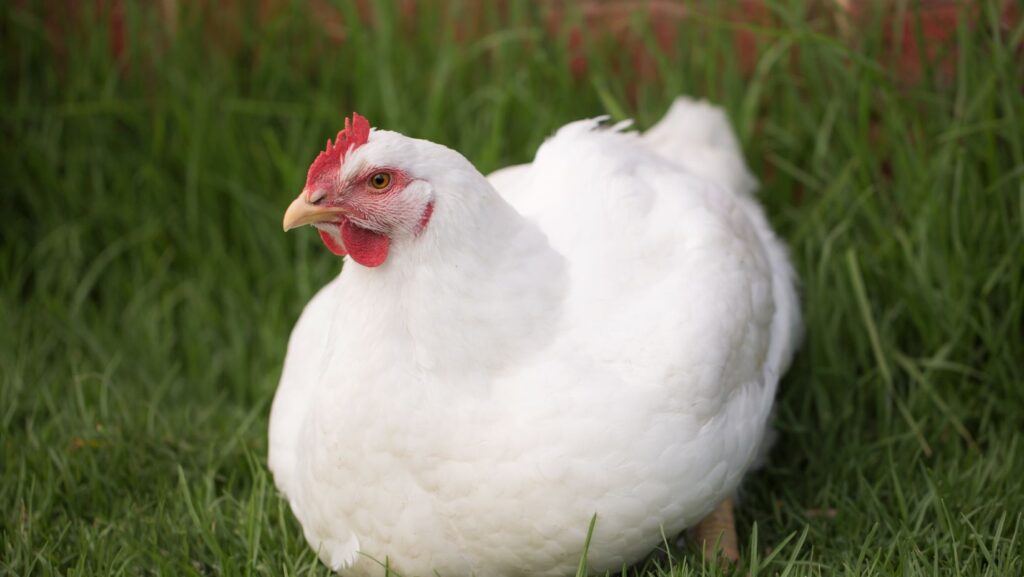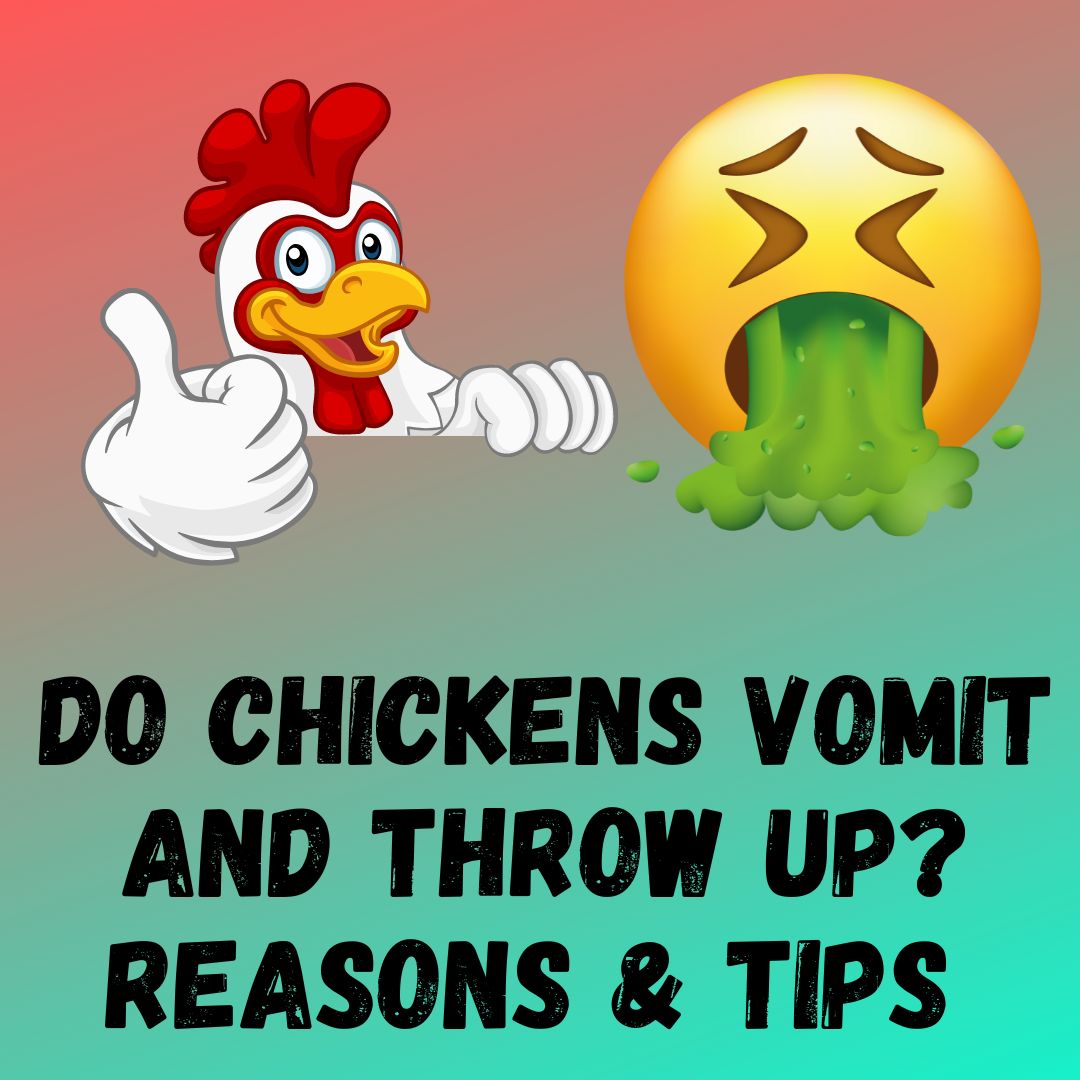Chickens can experience digestive issues that may result in abnormal droppings or other symptoms. Here are some common changes in droppings that chicken owners may observe and their potential causes:
- Damaged or Infected liver: Liver damage can occur due to various factors, including certain diseases, toxins, or medications. It can lead to digestive disturbances and potential vomiting-like symptoms in chickens.
- Ascites formation: Ascites is a condition characterized by an accumulation of fluid in the abdominal cavity. It can be caused by heart or liver problems, leading to vomiting or regurgitation-like behaviors in chickens.
- Over water consumption: Over-consumption of water can overload the digestive system and lead to vomiting-like symptoms in chickens.
- Worm infestation: Intestinal parasites, such as worms, can cause digestive issues in chickens, including vomiting or regurgitation-like behaviors.
- Sour or blocked crop pouch: The crop is a pouch in the chicken’s esophagus where food is stored before digestion. Sour crop occurs when the contents ferment, leading to foul odors and potential regurgitation. A blocked crop, caused by impacted food or other materials, can also result in vomiting-like symptoms.
- Diarrhea: Watery or loose droppings can be caused by various factors, including dietary changes, bacterial or viral infections, parasitic infestations, stress, or certain diseases.
- Changes in color: The normal color of chicken droppings can vary depending on the diet, but significant changes may indicate underlying issues. For example:
- Green droppings: This can occur due to the consumption of large amounts of green-colored foods, such as grass or leafy vegetables. It can also indicate digestive upset or bacterial infections.
- Yellow or orange droppings: These colors can be a result of excess bilirubin, a substance produced during the breakdown of red blood cells. It may indicate liver problems or certain diseases.
- White or chalky droppings: This can be a sign of excess urates, which are waste products produced by the kidneys. It can indicate kidney dysfunction or dehydration.

Post Contents
Chicken Dropping and Vomit Colors Comparison Table
Chickens have a unique digestive system that does not involve regurgitation or stomach acid. However, I have provide a table outlining the common changes in chicken droppings, their potential causes, and suggested actions to take:
| Dropping Color | Possible Causes | Recommended Actions |
|---|---|---|
| Green | – Consuming green foods | – Monitor for other symptoms |
| – Digestive upset | – Assess overall health | |
| – Bacterial infections | – Evaluate diet | |
| Yellow/Orange | – Liver problems | – Monitor for other symptoms |
| – Certain diseases | – Seek veterinary advice | |
| White/Chalky | – Kidney dysfunction | – Observe hydration levels |
| – Dehydration | – Isolate affected chickens (if necessary) | |
| – Consult a veterinarian if symptoms persist |
It’s important to note that changes in droppings can be caused by various factors, and the table above provides general information. If you notice persistent or concerning symptoms, it’s always best to seek professional veterinary advice for accurate diagnosis and guidance tailored to your specific situation.
Chicken Vomiting: Clear, White, Brown, Yellow, Green, and Black Fluid
When it comes to the health of chickens, observing any abnormal behavior or symptoms can be cause for concern. Vomiting is one such indication that something may be amiss. If you notice a chicken vomiting, it’s essential to pay attention to the characteristics of the fluid being expelled, as it can provide valuable insight into potential underlying issues. Here are some common colors of vomit in chickens and their possible causes:
- Clear Fluid: Vomiting clear fluid in chickens could be a sign of regurgitation rather than true vomiting. Chickens regurgitate to bring up undigested food or to feed their young. If you observe clear fluid being expelled, it is likely a natural part of the regurgitation process and may not be a cause for immediate concern.
- White Liquid: Vomiting white liquid in chickens can indicate a few different conditions. It may be a sign of crop issues, such as crop impaction or sour crop. Crop impaction occurs when the crop becomes blocked by undigested food, while sour crop is a condition caused by an overgrowth of yeast or bacteria in the crop. Both conditions require veterinary attention to address the underlying problem.
- Brown Liquid: Vomiting brown liquid in chickens can be associated with gastrointestinal bleeding or the consumption of substances like dirt, sand, or feces. Gastrointestinal bleeding can be caused by various factors, including infections, parasites, or ingestion of harmful materials. It is crucial to consult a veterinarian if you observe persistent vomiting of brown liquid in chickens.
- Yellow Liquid: Vomiting yellow liquid in chickens can indicate a liver or gallbladder issue. The yellow color may be due to bile, a substance produced by the liver and stored in the gallbladder. Liver diseases, infections, or blockages in the bile ducts can result in the presence of bile in the vomit. Veterinary examination and appropriate diagnostic tests are necessary to determine the exact cause.
- Green Liquid: Vomiting green liquid in chickens may indicate an infection or the consumption of green-colored substances. If the chicken has been eating grass, plants, or any other green material, the vomit may appear green. However, if there are signs of illness or discomfort accompanying the green vomit, it is advisable to seek veterinary advice.
- Black Liquid: Vomiting black liquid in chickens can be a cause for immediate concern. It may indicate gastrointestinal bleeding higher up in the digestive tract, where blood undergoes changes during digestion, resulting in a black appearance. This can be a serious condition requiring urgent veterinary attention.
In any case of chicken vomiting, it is crucial to monitor the bird’s overall health, behavior, and appetite. If vomiting persists, is accompanied by other concerning symptoms, or if you’re unsure about the cause, it is best to consult a veterinarian who can provide a proper diagnosis and recommend appropriate treatment to ensure the well-being of the chicken.
10 Causes Why is my chicken vomiting
If you observe any abnormal behavior or symptoms in your chickens that you interpret as vomiting, it could indicate an underlying health issue or digestive problem. In such cases, it is recommended to consult with a veterinarian who specializes in poultry. They can examine your chickens, determine the cause of the symptoms, and provide appropriate treatment.
Some potential reasons why your chicken might exhibit behaviors that resemble vomiting include:
- Crop impaction: The crop is a pouch in the chicken’s esophagus where food is stored before digestion. If it becomes impacted with food or other materials, it can lead to regurgitation-like behavior.
- Sour crop: Sour crop is a condition where the contents of the crop ferment, resulting in a foul odor and potential regurgitation.
- Gastrointestinal infections: Bacterial, viral, or parasitic infections can affect the digestive system and lead to symptoms that resemble vomiting.
- Toxic substances: Ingestion of toxic plants, chemicals, or spoiled feed can cause gastrointestinal distress and potential regurgitation-like behavior.
- Digestive disorders: Certain digestive disorders or mal-absorption issues can disrupt the normal digestive process and lead to abnormal behaviors.
- Intestinal blockages: If there is a blockage in the chicken’s intestines, it can cause discomfort and potential regurgitation-like behavior.
- Overeating: Consuming excessive amounts of food can overload the digestive system and result in regurgitation-like behavior.
- Dietary issues: An imbalanced or inappropriate diet can lead to digestive problems and associated symptoms.
- Stress or anxiety: High levels of stress or anxiety can affect a chicken’s digestive health and potentially lead to abnormal behaviors.
- Other health conditions: Various other health conditions, such as organ dysfunction or metabolic disorders, can manifest as digestive disturbances in chickens.
Remember, if you observe any symptoms that resemble vomiting in your chickens, it is crucial to consult with a veterinarian to obtain an accurate diagnosis and appropriate treatment for your specific situation.
10 Prevention Tips for Chicken Vomiting
As mentioned earlier, chickens do not vomit in the same way as humans do. However, if you observe symptoms in your chicken that resemble vomiting or regurgitation, it could indicate an underlying health issue or digestive problem. Here are some preventive measures you can take to promote good digestive health in your chickens:
- Provide a balanced diet: Ensure that your chickens receive a nutritionally balanced diet appropriate for their age and species. Consult with a poultry nutritionist or veterinarian to determine the best feed options for your flock.
- Avoid overfeeding: Overeating can put a strain on the digestive system. Provide appropriate portion sizes and avoid excessive treats or scraps.
- Maintain clean water sources: Ensure that your chickens have access to clean and fresh water at all times. Dirty or contaminated water can contribute to digestive issues.
- Monitor for toxic substances: Remove any toxic plants, chemicals, or spoiled feed from the chickens’ environment. Be cautious of potential hazards and ensure the chicken’s environment is safe.
- Prevent access to foreign objects: Remove any small objects or materials that chickens could ingest accidentally, as these can cause blockages or digestive problems.
- Minimize stress: Reduce stressors in the chickens’ environment, such as overcrowding, sudden changes, or predator threats. Provide a calm and secure coop and run area.
- Maintain good hygiene: Keep the coop clean and well-maintained. Regularly remove waste, provide clean bedding, and ensure proper ventilation to prevent the buildup of harmful bacteria or fungi.
- Regular veterinary check-ups: Schedule regular check-ups with a veterinarian who specializes in poultry. They can monitor the overall health of your chickens and address any potential issues before they become severe.
- Quarantine new chickens: When introducing new chickens to your flock, quarantine them for a period of time to prevent the spread of diseases and potential digestive issues.
- Observe and monitor: Keep a close eye on your chickens’ behavior, appetite, and droppings. If you notice any concerning changes or abnormal symptoms, seek veterinary advice promptly.
Summary
Remember, prevention is key to maintaining good digestive health in chickens. By implementing these preventive measures and seeking professional guidance when needed, you can help promote a healthy and thriving flock.
It’s important to note that if your chicken is vomiting or displaying other concerning symptoms, consulting with a veterinarian who specializes in poultry is highly recommended. They can provide a proper diagnosis and recommend appropriate treatment specific to your chicken’s condition.

94% of pet owners say their animal pal makes them smile more than once a day. In 2007, I realized that I was made for saving Animals. My father is a Vet, and I think every pet deserves one. I started this blog, “InPetCare”, in 2019 with my father to enlighten a wider audience.
